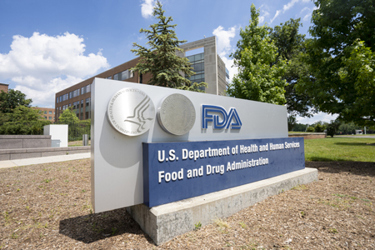FDA Releases Draft Guidance To Accelerate Biosimilar Development

By Tyler Menichiello, Chief Editor, Bioprocess Online

This week, the FDA released a new draft guidance aimed at reducing the timeline and cost of developing biosimilars.
The draft guidance, titled “Scientific Considerations in Demonstrating Biosimilarity to a Reference Product: Updated Recommendations for Assessing the Need for Comparative Efficacy Studies,” reflects the agency’s evolving stance on comparability requirements. Historically, biosimilar developers were required to perform comparative efficacy studies (CES) to demonstrate comparability or biosimilarity to reference products. These CES can take several years to complete and cost roughly $24 million on average, according to the agency’s press release. This new guidance suggests that in many cases, comparative analytical assessments (CAA) may be sufficient to prove biosimilar comparability.
Here's an excerpt from the guidance:
"Generally, if the CAA supports a demonstration that the proposed biosimilar is highly similar to its reference product, notwithstanding minor differences in clinically inactive components, an appropriately designed human pharmacokinetic similarity study and an assessment of immunogenicity may be sufficient to evaluate whether there are clinically meaningful differences between the proposed biosimilar and the reference product in terms of safety, purity, and potency.
In such an instance, FDA recommends that sponsors consider a streamlined approach where a CES may not be necessary to support a demonstration of biosimilarity. The adequacy of the data from a CAA, pharmacokinetic similarity data, and immunogenicity assessment to support a demonstration of biosimilarity, would be evaluated based on the totality of the evidence submitted in the biologics license application."
Per the draft guidance, a streamlined approach should be considered when:
- The reference product and proposed biosimilar are manufactured from clonal cell lines, are highly purified, and can be well-characterized analytically
- The relationship between the reference product’s quality attributes and clinical efficacy is understood and can be evaluated by assays included in the CAA
- A human pharmacokinetic similarity study is feasible and clinically relevant
This shift in comparability requirements for biosimilars represents a progressive step forward for the industry in terms of being able to provide patients with safe and affordable alternatives to name-brand biologics. There are currently only 76 biosimilars approved by the FDA, compared to more than 30,000 approved generics, and only about 10% of biologics with expiring patent protections in the next decade have biosimilars in development, per the press release. Hopefully, by reducing the cost and timeline of developing biosimilars, this percentage will increase as a result of this new guidance.
